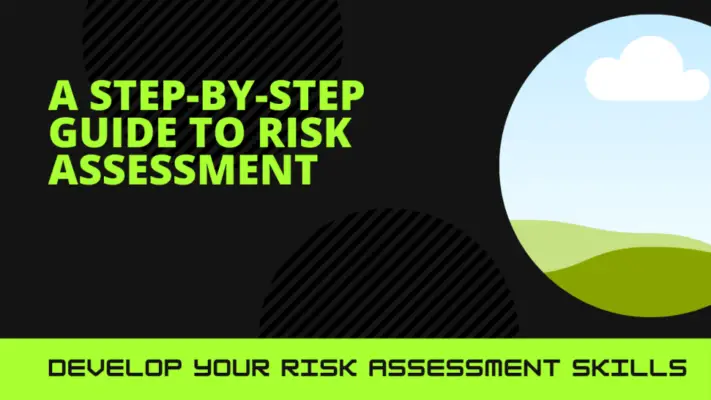Business risk assessment enables organizations to identify and evaluate potential risks impacting their operations and objectives.
It systematically analyzes the internal and external factors affecting the organization’s ability to achieve its goals, including financial, operational, legal, reputational, and strategic risks.
Using a comprehensive business risk assessment, companies can effectively anticipate potential threats and develop strategies for mitigating them.
The importance of business risk assessment cannot be overstated. It provides organizations with valuable insights into the vulnerabilities and weaknesses in their systems and processes, enabling them to make informed decisions about resource allocation and risk management strategies.
Furthermore, it helps businesses comply with regulatory requirements by identifying areas of non-compliance or potential legal issues.
This article will explore the factors to consider in business risk assessment, the process involved in conducting it, and strategies for mitigating identified risks.
Additionally, it will highlight the benefits of a comprehensive business risk assessment in enhancing overall organizational resilience and sustainability.

Importance of Business Risk Assessment
The importance of business risk assessment lies in its ability to comprehensively evaluate potential risks, enabling organizations to identify and prioritize areas that require mitigation strategies visually.
Proactive risk management is crucial for companies as it allows them to anticipate and address potential threats before they become major issues.
By conducting a thorough risk assessment, organizations gain valuable insights into their various risks, such as financial, operational, legal, or reputational risks. This knowledge empowers decision-makers to make informed choices regarding resource allocation and strategic planning.
Moreover, the impact of risk assessment on decision-making cannot be overstated. It helps businesses identify opportunities for growth while minimizing potential dangers.
Organizations can confidently navigate uncertain environments and ensure long-term success with an effective risk assessment process.
Factors to Consider in Business Risk Assessment
One important aspect to consider when evaluating potential vulnerabilities in an organization’s operations is the analysis of various factors that may contribute to its level of exposure.
Conducting an industry analysis is crucial as it provides insights into the risks faced by businesses operating within a particular sector.
This involves examining market trends, competitive forces, regulatory changes, and technological advancements that can impact the organization’s operations and profitability.
Additionally, identifying risks within the business itself is essential for effective risk assessment. This includes evaluating internal processes like supply chains, financial management systems, and human resources practices.
By considering these factors during a business risk assessment, organizations can comprehensively understand their vulnerabilities and develop appropriate strategies to mitigate them.
| Factor | Description |
|---|---|
| Market Trends | Examine emerging technologies that could disrupt or enhance the organization’s products or services. |
| Competitive Forces | Evaluation of competitors’ actions and strategies that could pose threats or create opportunities for the organization. |
| Regulatory Changes | Assessment of legal and regulatory requirements that might impact the organization’s operations. |
| Technological Advancements | Examination of emerging technologies that could disrupt or enhance the organization’s products or services. |
Process of Conducting a Business Risk Assessment
To evaluate potential vulnerabilities in an organization’s operations, it is essential to follow a systematic process that involves analyzing various factors contributing to its level of exposure and conducting industry research.
Conducting a risk assessment requires several steps to evaluate business risks comprehensively.
Firstly, the organization needs to identify and define the objectives of the risk assessment. This includes determining the scope and boundaries of the assessment and identifying key stakeholders involved.
Once this is established, data collection begins by gathering information on internal and external factors that may impact the organization’s operations.
This can include financial records, operational processes, regulatory compliance requirements, market trends, and competitor analysis.
After data collection, a thorough analysis assesses the likelihood and impact of identified risks.
Finally, risk mitigation strategies are developed based on the assessment results to minimize potential negative consequences for the organization.
Using these steps in risk assessment, organizations can gain valuable insights into their vulnerabilities and make informed decisions to protect their interests.
Strategies for Mitigating Business Risks
Implementing effective strategies is crucial for minimizing potential negative consequences and safeguarding the interests of an organization against various vulnerabilities that may arise during its operations.
Risk management techniques and risk mitigation strategies are significant in this process.
Firstly, organizations can adopt a proactive approach by identifying and assessing potential risks before they materialize. This allows them to implement preventive measures such as creating contingency plans or implementing safety protocols.
Secondly, organizations can transfer risks through insurance policies or outsource certain activities to specialized firms. This helps reduce the impact of potential risks on the organization’s operations.
Organizations can also diversify their business portfolios to minimize exposure to specific risks. By spreading their resources across different markets or product lines, they can mitigate the impact of any adverse events on their overall performance.
These risk management techniques and mitigation strategies help organizations navigate uncertainties effectively while maintaining long-term sustainability and growth.

Benefits of a Comprehensive Business Risk Assessment
Conducting a thorough evaluation of potential vulnerabilities and uncertainties in an organization’s operations can significantly enhance its ability to anticipate and navigate potential challenges, ensuring a robust foundation for sustainable growth.
A comprehensive business risk assessment offers numerous benefits and advantages to businesses, such as:
- Improved decision-making: By identifying and understanding potential risks, organizations can make informed decisions that mitigate those risks effectively.
- Enhanced operational efficiency: Identifying weaknesses or gaps in processes allows businesses to streamline their operations and improve overall efficiency.
- Strengthened financial stability: Assessing risks helps businesses identify financial vulnerabilities and take necessary measures to ensure stability.
- Increased stakeholder confidence: A transparent risk assessment process instils confidence in investors, customers, and other stakeholders by demonstrating that the organization is proactive in managing potential threats.
Conducting a comprehensive business risk assessment, organizations gain valuable insights into their internal workings and external environment, enabling them to address challenges and capitalize on opportunities for long-term success proactively.
Frequently Asked Questions
How does business risk assessment impact the overall success of a company?
Business risk assessment impacts the overall success of a company by identifying potential risks and allowing for proactive measures to mitigate them.
It helps minimise financial losses, improve decision-making, enhance operational efficiency, and ensure long-term sustainability.
What are some common challenges faced while conducting a business risk assessment?
Some common challenges faced while conducting a business risk assessment include identifying and prioritizing risks and gathering accurate data.
Applying appropriate analytical tools and developing effective mitigation strategies to address identified risks.
Are there any legal or regulatory requirements for businesses to perform risk assessments?
Businesses may be subject to legal or regulatory requirements to perform risk assessments.
These requirements vary depending on the industry and jurisdiction and aim to ensure businesses identify and manage potential risks effectively to protect stakeholders and comply with relevant laws and regulations.
Can business risk assessment help identify potential opportunities for growth and innovation?
Business risk assessments can indeed help identify potential opportunities for growth and innovation.
Businesses can make strategic decisions that leverage their strengths and exploit market gaps by analysing potential risks, leading to sustainable growth and competitive advantage.
How often should a business conduct a comprehensive risk assessment to ensure ongoing risk management?
To ensure ongoing risk management, businesses should conduct comprehensive risk assessments at regular intervals.
The frequency of business risk assessment depends on the nature and complexity of the organization’s operations, but it is generally recommended to perform such assessments annually or bi-annually.
Consistent risk assessment allows businesses to identify and address potential threats in a timely manner, promote effective decision-making, and mitigate the impact of risks on organizational objectives.
Consequently, it plays a crucial role in ensuring the sustainability and success of businesses by minimizing uncertainties and maximizing opportunities for growth and innovation.

Conclusion
A comprehensive business risk assessment is crucial for any organization to effectively identify and manage potential risks.
Businesses can gain valuable insights into their risk exposure by considering various factors such as industry trends, economic conditions, legal and regulatory requirements, and internal vulnerabilities.
This knowledge enables them to develop appropriate strategies for mitigating these risks and safeguarding their operations.
Conducting a thorough business risk assessment allows organizations to make informed decisions and protect their long-term success in an ever-changing business landscape.

Chris Ekai is a Risk Management expert with over 10 years of experience in the field. He has a Master’s(MSc) degree in Risk Management from University of Portsmouth and is a CPA and Finance professional. He currently works as a Content Manager at Risk Publishing, writing about Enterprise Risk Management, Business Continuity Management and Project Management.

